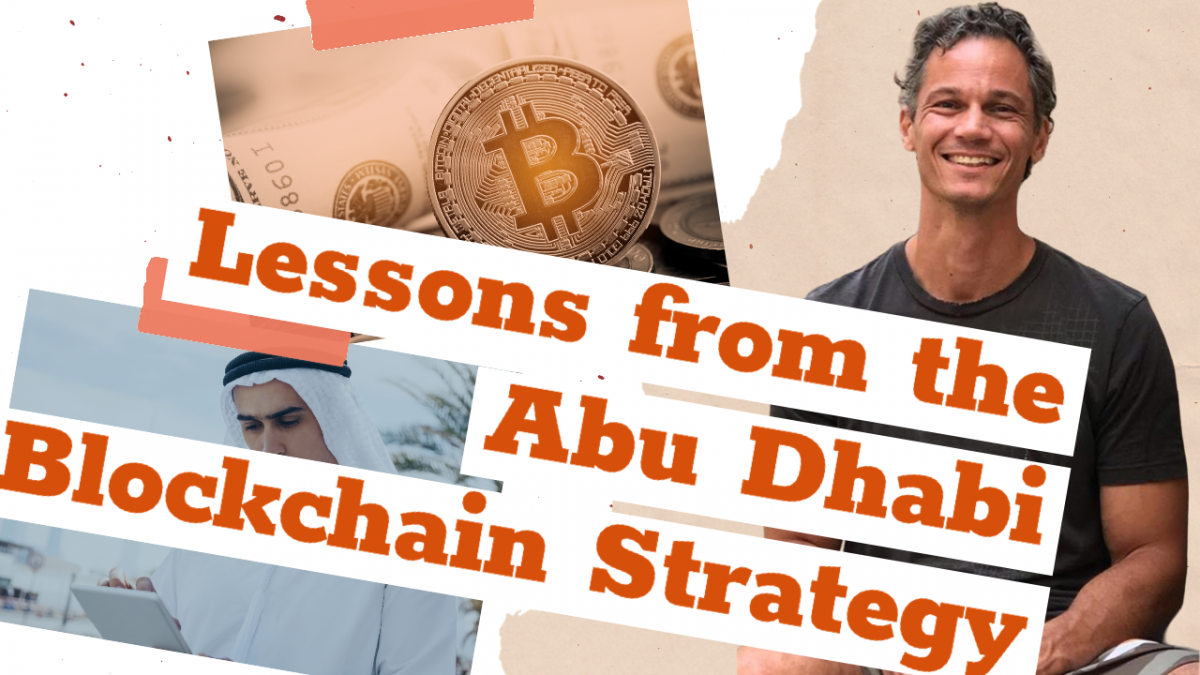Crypto is not an empty futuristic dream. It is happening. The Abu Dhabi Blockchain strategy is a genuine initiative to become the first crypto-powered government and city. What is happening in Abu Dhabi and what can we learn from it?
Cryptocurrencies are now being recognized by governments and accepted by organizations and businesses across the globe. Dubai has long been a frontrunner in embracing digital innovations and Abu Dhabi holds 31 percent of the global cryptocurrency exchange and has a huge financial market.
But it takes guts to be in the forefront of innovation. As early as 2015 a group of blockchain experts and policy makers decided to implement blockchain technology and disrupt the digital landscape of the nation. Dubai was to become the first crypto-powered government and city and a testing ground for crypto business experiments.
In fact, The Ministry of Artificial Intelligence wants the government to be paperless by 2026 and goes all-in on using blockchain technology. The Abu Dhabi Blockchain Strategy has the bold goal that 60% of all public transactions should be on a blockchain by 2025. This technological shift has potential to save 3 billion USD in transactions cost and 100 million paper documents and over 50 million operating hours each year. The grandiose feel of the project is highlighted with building the World Trade Center to create a high-end spot for a range of crypto services and to create a true blockchain-based world city. Currently over 300 crypto businesses have established their base in Dubai and crypto firms are being assisted with zero taxes and visa restrictions have been removed to support eager entrepreneurs. In 2022 the Emirate has doubled down on its commitment to blockchain technology.
Money laundering, inadequate customer protection and lack of accountability of crypto companies are still headaches in the crypto industry. Some governments and their agencies use weaknesses in the crypto space to increase their power and control of the people and some genuinely try to create regulation that protect the customer and accelerate innovation.
We need regulatory clarity on a global scale to support the good and to fight the bad in crypto.
We are getting clearer digital market legislation in Europe with the Markets in Crypto Assets Regulation bill which was recently passed by European lawmakers. This legislation is set to come into effect in 2024. While the USA is still trying to decide what crypto currency is a commodity and what is a security and how to properly regulate the market but not hinder innovation.
Abu Dhabi have followed a clearer path. To attract foreign direct investments, as well as venture capital, and to support the adoption of cryptocurrencies Dubai have introduced regulation by creating Dubai’s Virtual Assets Regulation Authority (VARA). These smart regulatory moves have been claimed to be the reason why the world’s biggest crypto exchanges, Binance, Crypto.com as well as Bybit are setting up regional headquarters in Dubai. Money clearly likes stability with great potential. Furthermore, VARA is the first regulatory organization in the world that have set up camp in the metaverse.
Blockchain technology, AI and the internet of things are key players in the fourth industrial revolution that we are experiencing. It is obviously not easy to be in the forefront of using new technologies that also need to converge with each other. Dubai is trying hard and will be sharing their mistakes for the benefit of the world.
Key lessons in the grandiose Adu Dhabi blockchain initiative may be the following. The sweet nectar of success will be tasted when focus is on building a crypto ecosystem that increase trust between governing bodies, investors, entrepreneurs, and customers. A true blockchain based city is transparent and safe and sound. That’s when technology has possibility to meet individual needs and improve society and potentially increase our sense of happiness.

